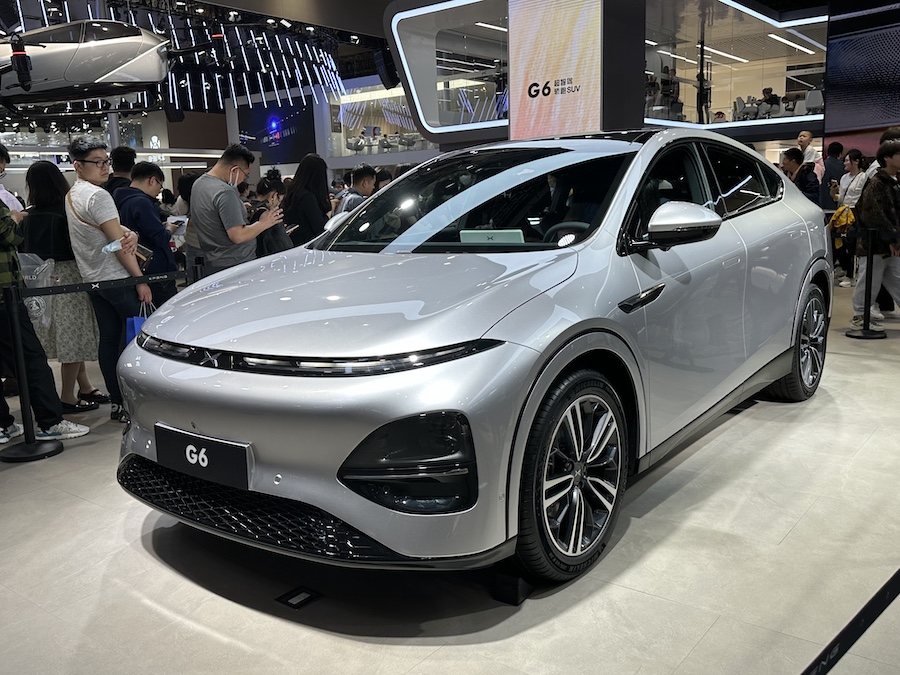Volkswagen’s Strategic Collaboration with Xpeng: Advancing Electrification in China
Volkswagen Group announced a strategic partnership with Xpeng Motors in China to advance its electrification strategy.
The agreement involves a $700 million investment, acquiring a 4.99% stake in Xpeng. Both companies will jointly develop electric intelligent connected vehicles (ICV) for the Chinese market, enhancing Volkswagen’s presence. The collaboration aims to address Volkswagen’s deficiencies in intelligent cabins and autonomous driving capabilities.
Additionally, Audi and SAIC Group will deepen their cooperation in high-end electric ICVs. The move reflects Volkswagen’s commitment to China’s automotive market and its ambition to harness the country’s growth potential and innovation.
1. Volkswagen Invests in Xpeng Motors to Advance Electrification Strategy
On July 26, 2023, Volkswagen Group announced a strategic cooperation agreement with Chinese electric vehicle manufacturer Xpeng Motors and its Chinese partner Audi and SAIC Group. The collaboration aims to strengthen Volkswagen’s position in the Chinese automotive market and accelerate its electrification strategy.
As part of the agreement, Volkswagen Group will invest approximately $700 million in Xpeng Motors, acquiring approximately 4.99% of the company’s shares at a price of $15 per ADS. Volkswagen will also secure an observer seat on Xpeng Motors’ board of directors.
Additionally, the two companies reached a technology framework agreement to jointly develop electric intelligent connected vehicles (ICV) specifically for the Chinese market. This collaboration will complement Volkswagen’s existing product portfolio based on the MEB platform, with plans to launch two new models in 2026.
To facilitate the joint projects, Volkswagen has established a new technology company in China named Volkswagen (China) Technology Co., Ltd. This company will be responsible for the development of new Volkswagen brand models and will collaborate with Xpeng Motors in the development domain. With over 2,000 R&D and procurement experts, this technology company aims to achieve significant synergies and cost advantages.
Meanwhile, Audi has signed a memorandum of understanding with SAIC Group to further deepen their existing cooperation. Both companies plan to expand their high-end electric intelligent connected vehicle product lineup through joint development. As the first step, Audi will introduce a new electric model to penetrate untapped market segments in China. The collaboration will leverage each other’s core competencies to create electric vehicles equipped with state-of-the-art software and hardware, delivering an intuitive and interconnected digital experience to Chinese customers.
These two agreements envision a localized platform for joint development of next-generation intelligent connected vehicles (ICV), expanding Volkswagen Group’s product range and catering to the diverse demands of Chinese customers and market segments. This move further underscores Volkswagen Group’s “In China, For China” strategy, aiming to capitalize on China’s decisive trends, growth momentum, and innovation prowess more efficiently.
Herbert Diess, the CEO of Volkswagen Group China, emphasized the significance of cooperating with local partners as a cornerstone of their strategy, enabling the faster launch of new products that cater to China’s unique customer needs and optimizing development and procurement costs.
Xpeng Motors’ Chairman and CEO, He Xpeng, stated that the collaboration allows mutual sharing of expertise in intelligent electric vehicles, contributing technological strengths to the strategic partnership and creating value for Xpeng Motors and its shareholders.
Meng Xia, CEO of Volkswagen Passenger Cars Brand China, highlighted that Volkswagen will continue advancing its electrification strategy with the powerful MEB and SSP platforms, aiming to jointly introduce two new intelligent connected vehicle models with Xpeng Motors, thus expanding its customer base.
Zu Sijie, Vice President and Chief Engineer of SAIC Group, expressed confidence in accelerating the development of new electric models to meet the demand for high-end electric intelligent connected vehicles in China, fostering a win-win cooperation.
Li Borui, Chief Financial, IT, and Legal Officer of Audi AG, acknowledged that the close collaboration with SAIC Group will assist Audi in achieving its goal of establishing a foothold in China’s high-end intelligent connected electric vehicle market.
Volkswagen Group is strengthening its local R&D capabilities in China, establishing a highly modern production, research, and innovation base to expedite decision-making and development processes in the country. Cooperation with local high-tech enterprises is also a key focus for Volkswagen Group to lead the market and provide essential support for the development of intelligent connected vehicles in the new era.
These cooperative initiatives showcase Volkswagen Group’s proactive stance in the Chinese automotive market. By joining forces with local partners, the company aims to drive the development of electric and intelligent connected vehicles, providing Chinese customers with products that cater to their diverse needs. These measures lay a solid foundation for Volkswagen Group’s future growth in the Chinese market.
2. Volkswagen’s Collaboration with Xpeng Sparks Attention and Challenges
The rapid development of China’s smart electric vehicle industry has garnered widespread attention from international automotive companies, prompting some to willingly invest significant sums in acquiring cutting-edge technology. Particularly, the partnership between German automaker Volkswagen Group and Chinese smart electric vehicle company Xpeng Motors has become a focal point.
Termed as a “long-term strategy,” the collaboration aims to see more Volkswagen-branded electric vehicles featuring Xpeng’s technology sold in Volkswagen stores over the next five years. These models may be named “Volkswagen ID Peng” or “Volkswagen ID 9 He Xpeng Signature Edition.”
According to the agreement, two mid-size SUV models will be launched in the next three years. Given that Volkswagen’s all-electric mid-size sedan ID.7 has yet to be officially launched in China, these two new vehicles are likely the third-generation Xpeng G6 and its variant, branded with Volkswagen’s logo.
Although these vehicles bear the Volkswagen emblem, they remain of a different lineage and will not undermine the interests of existing joint ventures, particularly the influential FAW-Volkswagen partnership.
However, it is important to note that this collaboration does not imply Volkswagen’s submissive admiration for Xpeng. Instead, it appears that Xpeng has offered a helping hand to Volkswagen, considering the current performance of Volkswagen’s ID series electric vehicles in the Chinese market and their deficiencies in intelligent cabins and autonomous driving capabilities. The cooperation with Xpeng provides the much-needed support in smart technology for Volkswagen.
While both parties express optimism about the prospects of the collaboration, differences in corporate culture and decision-making processes might pose challenges. To compensate for its software shortcomings, Volkswagen has already taken various measures, including setting up subsidiaries and establishing joint ventures with Horizon Robotics. Now, with the addition of Xpeng, careful coordination between these diverse teams will be required.
Despite the risks associated with the collaboration, for Volkswagen, it represents a successful venture into the world of risk investments. Regardless of the ultimate outcome, the experience gained and capital returns acquired by Volkswagen in China’s smart electric vehicle industry are likely to be substantial.
On the whole, the rise of China’s smart electric vehicle market has prompted international automotive companies to reevaluate their positioning and technological capabilities. By collaborating with Chinese domestic smart electric vehicle companies, foreign automakers have the opportunity to seek breakthroughs in this fast-growing market and collectively drive advancements in electric vehicle technology.
Photo from Wikimedea

